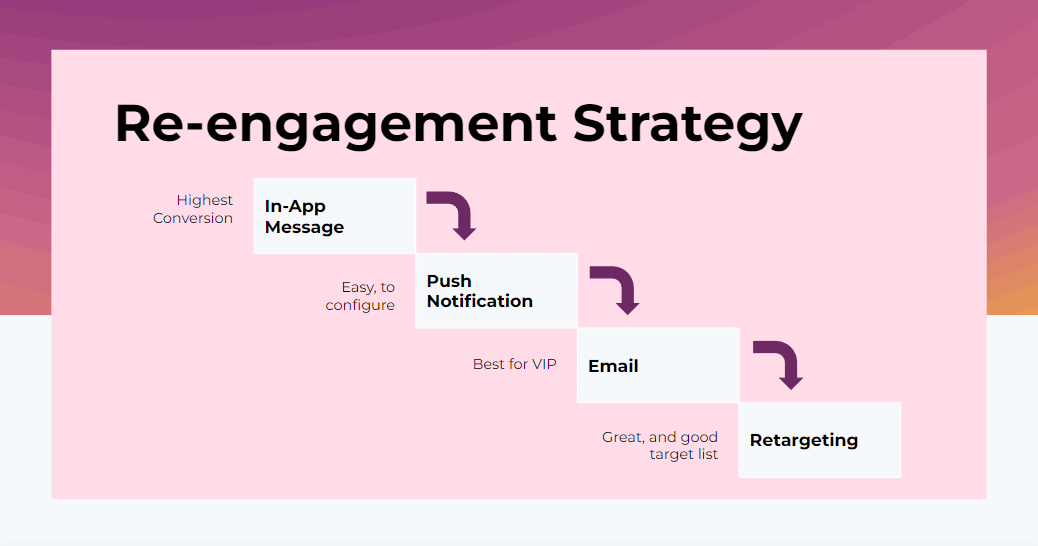The Ultimate Hookup Guide
Explore expert tips and advice on navigating the world of modern dating and hookups.
From Noob to Pro: Navigating the Player Lifecycle Marketing Journey
Unlock your gaming potential! Discover the ultimate guide to mastering player lifecycle marketing and level up from noob to pro!
Understanding the Player Lifecycle: Key Stages from Noob to Pro
Understanding the player lifecycle is crucial for both new and experienced gamers, as it highlights the different phases every player goes through, from Noob to Pro. The first stage, Noob, is characterized by a lack of experience and knowledge about the game mechanics, which often results in confusion and frustration. During this phase, players are just learning the basics, exploring the game world, and figuring out how to interact with other players. As they progress, they transition into the Intermediate stage, where they start to grasp essential strategies and develop their skills, often by engaging with online forums or watching tutorials.
The next significant phase is the Advanced stage, where players have a good level of expertise and can execute strategies effectively. They begin to understand the nuances of the game, such as character strengths, weaknesses, and optimal team compositions. Finally, the Pro stage is where players have mastered the game, often participating in competitive play and tournaments. Understanding these key stages of the player lifecycle not only enhances the gaming experience but also helps developers tailor content and engagement strategies to keep players invested at every level.

Counter-Strike is a popular team-based multiplayer first-person shooter that has captivated gamers around the world. Players can engage in intense tactical combat on various maps, employing strategy and teamwork to achieve objectives. For those interested in enhancing their gaming experience, look out for a betpanda promo code that can provide exciting benefits.
Best Practices for Engaging New Players: Boosting Retention and Progression
Engaging new players is crucial for any game developer aiming to boost retention and progression. One of the best practices is to create a well-structured onboarding process that guides players through the fundamentals of the game. This process can include interactive tutorials, brief explanations of game mechanics, and a gradual introduction to challenges. For example, consider implementing a tutorial mission that allows new players to experience basic gameplay elements while rewarded with in-game currency or items, thus fostering a sense of accomplishment from the very start.
Another essential strategy is to establish a strong community presence. Encourage new players to join forums or social media groups where they can connect with experienced players. This can lead to shared tips and experiences, making newcomers feel more integrated and valued. Additionally, consider hosting regular community events or challenges that promote interaction amongst players. Utilizing feedback from these events not only helps in making necessary adjustments to the game but also enhances player loyalty and motivation, ultimately resulting in improved retention and progression.
How to Create Targeted Marketing Campaigns for Each Player Stage
Creating targeted marketing campaigns for each player stage is crucial for maximizing engagement and conversions. To achieve this, you need to identify the distinct stages in the player journey: awareness, consideration, and decision. Awareness campaigns should focus on educating potential players about your game, utilizing social media ads and influencer partnerships to reach a wide audience. During the consideration stage, it’s essential to provide players with detailed information, such as gameplay videos and testimonials, to build trust and interest. Finally, in the decision stage, deploying promotional offers or free trials can effectively encourage players to make a purchase.
To ensure the effectiveness of your targeted marketing campaigns, it's important to tailor your messaging to each player stage. Use analytics tools to track player behavior and segment your audience based on their interactions with your game. For instance, a player who has shown interest but hasn’t signed up may respond well to a follow-up email highlighting exclusive features or benefits. Similarly, for players at the decision stage, a compelling retargeting ad featuring a limited-time discount can serve as a decisive factor. Remember, the key to successful targeted campaigns is to continuously refine your approach based on feedback and performance data.